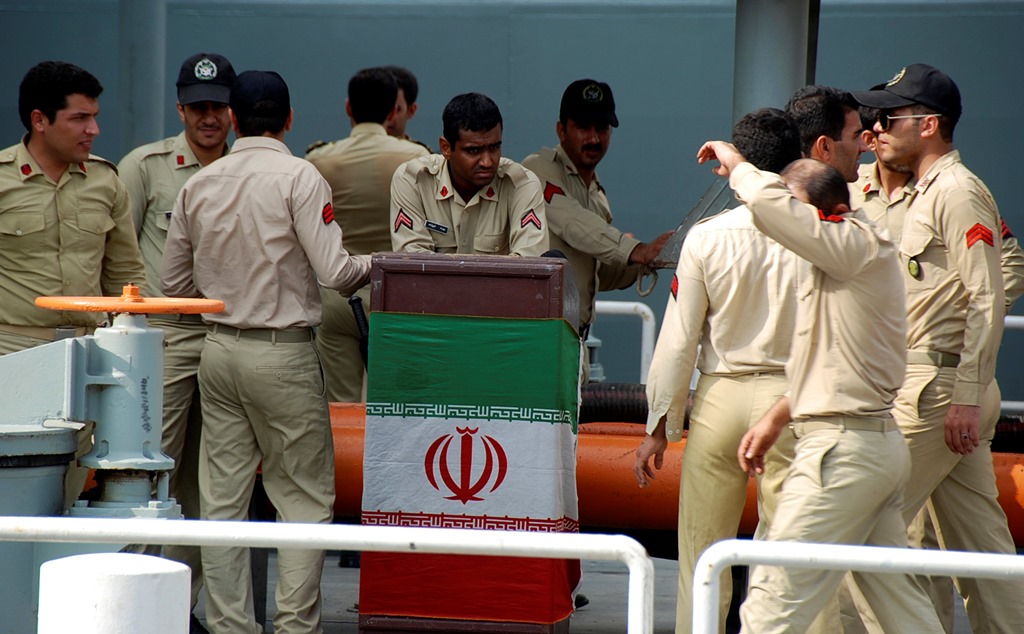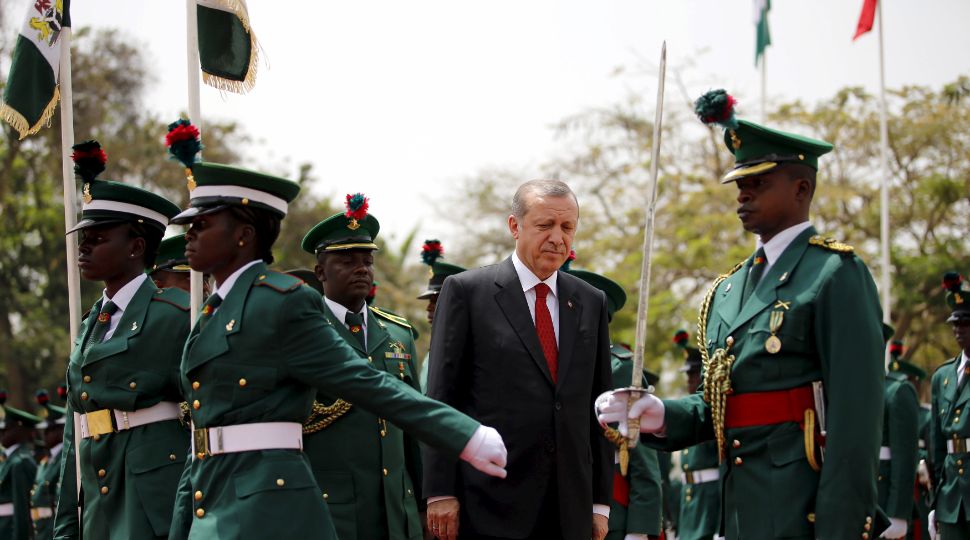Competition between Regional Powers on the Horn of Africa

The Horn of Africa is comprised of Ethiopia, Eritrea, Djibouti, and Somalia. The latter state can be divided into a central part with the capital in Mogadishu and Somaliland, a de facto independent entity in the north. Two Middle East political blocs square off in the maritime states of the Horn of Africa. In Eritrea and Somaliland, the United Arab Emirates has a military presence and Saudi and Egyptian interests are also involved. Turkey, allied with Qatar, has increased its political, economic, and military presence in Somalia and Sudan, which borders the Horn in the north. The rivalry between these two blocs has brought with it new dynamics inside and between the African states.
Strategic Importance
The Horn of Africa and the African coast on the Red Sea are strategically located next to one of the most important maritime trade routes linking Europe and Asia. The expansion of Somali piracy in the first decade of the 21st century led to an increase in the international military presence to protect shipping. Apart from the European mission Atalanta, which began in 2008, a number of other states ordered warships to the area, including China, Pakistan, Saudi Arabia, Iran, Russia, Japan, South Korea, and Thailand. The importance of the Horn of Africa and the Red Sea rose significantly in the military and political strategies of various states. Djibouti became the preferred location for foreign military bases. After the French, stationed in Djibouti since its independence in 1977, and the Americans, who arrived in 2001, Italy placed bases there in 2013. The French also began to host German and Italian troops. For Japan and China, their military bases in Djibouti, opened in 2011 and 2016, respectively, were the first installations of their kind abroad. Qatari soldiers were present in Djibouti until 2017, and Saudi Arabia has been approved to build its own base in the country while Turkey is still negotiating.
Historically linked to the Ottoman Empire, the region is especially important to Turkey, which is expanding its influence in Africa. For the Arab Peninsula states, which import food from the Horn, the region’s prominence has increased in the context of their involvement in the regional war in Yemen, ongoing since 2015, and the diplomatic conflict with Qatar that erupted in 2017. Qatar maintains close ties to Turkey. Meanwhile, Saudi Arabia and the UAE have pushed most of the states in the region to break ties with Iran and support the Saudi-led coalition in Yemen. Support from the states of the Horn of Africa ensures the Saudi bloc that the pro-Iranian Houthis in Yemen are cut off from supplies.
Turkey, UAE Outposts
With both Turkey and the UAE establishing military bases on the Horn, theirs is the most visible manifestation of the rivalries in the region. Turkey’s Recep Tayyip Erdoğan’s visit to the Somali capital in 2011, then as prime minister and the first such trip by a non-African leader since 1991, gave Turkey primacy in building influence in the state. The circumstances and decisions accompanying the visit exposed the special significance Turkey attaches to its relations with Somalia. It was first to bring humanitarian aid during the 2011 famine and to mobilise other Muslim nations to do the same. It began a massive programme of scholarships for Somalis to study in Turkey and established a direct flight connection from Istanbul to Mogadishu. In 2016, Turkey opened its biggest embassy in the world there and the next year opened its second military base in a foreign country, after the one in Qatar. The presence of Emirati military instructors in Somalia, who have been in the country since 2014, became politically problematic for the authorities in Mogadishu and for Turkey. After building its position in Somalia, Turkey turned to Sudan. By the end of 2017, Sudan agreed to lease Turkey the Red Sea island of Suakin, an historically important Ottoman port, for 99 years. Turkey is supposed to rebuild the island’s historic monuments and develop it into an important stop for African pilgrims en route to Mecca. Suakin could become a base for Turkish warships, offering it its first direct access to the Red Sea.
The UAE’s conflict with Djibouti in 2015 ended its plans to expand its military infrastructure in the country and pushed it to seek alternative locations for bases to support its military effort in Yemen. Later the same year, the Emiratis established a base in the Eritrean port of Assab, just north of Djibouti. The base became known as a site for the interrogation of Yemeni captives. In November 2017, the UAE begun construction of its new base in Berbera in Somaliland (south of Djibouti), over which Somalia has unsuccessfully sought to re-establish control. In both Eritrea and Somaliland, the UAE invests heavily—it is expanding the Asmara airport and plans to turn Berbera’s maritime port into an alternative to Djibouti for exports of goods from the Horn, mainly from Ethiopia.
Risk of New Conflicts
At the end of 2017, there was a rapid increase in tension between the two blocs around Turkey’s activity on Suakin. The establishment of a Turkish base in this key corridor between the Egyptian and Emirati forces in Eritrea would put a gap in the Saudi-led coalition’s control over the Red Sea coast. In January 2018, reports emerged of a transfer of Egyptian forces to Assab and an imminent military incursion into Sudan from Eritrea. The invasion would have aborted the Turkish plans in the region and strengthened Egypt in its row with Sudan-allied Ethiopia. Sudan, in turn, closed its border with Eritrea, called up recruits and moved army and paramilitary units from the interior. The tension faded once it became clear the threat of invasion was not real. But it signalled for the first time since the end of the Cold War that the Horn of Africa could again become an arena for proxy wars.
Tensions also rose in 2017 between Somalia and the UAE after the authorities in Mogadishu refused to break ties with Qatar as demanded by the Saudi coalition. Turkey, though, was against it. Somalia, alarmed by the development of close relations between the UAE and Somaliland, ordered the Emirati logistics company DP World to cease all activities in Somalia. In April, it ended its military cooperation with the UAE and requested its instructors leave. In turn, the UAE closed the hospital it ran in Mogadishu, which added to anti-Emirati sentiment in Somalia. The landing of Emirati troops on the Yemeni island of Socotra, off the coast of Somalia, in May 2018, may have been partly motivated by the aim to keep some influence over the Somali coast after leaving the mainland. Although Turkey has succeeded in expelling its main rival in the region from Somalia, the new balance of power has re-ignited the tension between the Somali government in Mogadishu and Somaliland, with both entities now backed by rival blocs.
Significance for the EU and Poland
For the EU, the entry of prominent new players on the Horn of Africa complicates the conduct of effective policies towards this region. While EU states have a military presence in Djibouti and support the Mogadishu-based Somali government and the African Union military mission in Somalia (AMISOM), which keeps them relevant in the region, in other parts along the coast of the Horn the EU must accept the primacy of the regional powers. Even if the rivalry between the Middle East blocs does not pose a threat to European interests in the region, the EU is losing the initiative and its influence is declining. The Horn of Africa’s importance as an arena for competition between regional states continues to increase. The risk arises that the engagement of third countries in local conflicts could complicate the EU’s ability to assist in resolving them diplomatically and extend its influence concerning migration control and other issues. The competition on the Horn is meaningful in the context of Polish assessments of economic opportunities in the region, when control of commercial ports that offer access to the Ethiopian and Sudanese markets, is contested. That may limit the chances for the development of Polish investment in the region, e.g., by limiting access to such projects as the expansion of power transmission lines for electricity produced in Ethiopia to Sudan and Djibouti, or the upgrade of rolling stock and port infrastructure.





